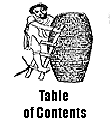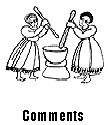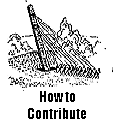
 #5: To foment change (of any kind), attitudes and behaviors have to evolve. What are the ways in which this can be best done in these "modern" times, when near-insurmountable challenges (such as HIV/AIDS) are placing some urgency on our ability to change? Berhanu Yalew Yihun Attitudes and behaviors do not change just because one is lectured about them. The underlying conditions, nay incentives, have to be conducive for change. As Ethiopian society fragments along ethnic, religious and class lines, and as emigration provides an outlet for the most ambitious or disgruntled, the prospects for collective action may diminish. At the same time, new ideas become easier to spread and knowledge of the possibilities for change may galvanize those at home into action. One often expects big crises (such as HIV/AIDS or national famines) to trigger popular revolt, but they often bring paralysis instead. In fact, people tend to clamor for change when change appears to be possible as when living standards improve and peace becomes more secure. Ironically, it is in these times that rising expectations and improved capabilities lead to effective mobilization. Sorry for being non-committal here, I honestly do not have a better answer. Dr. Fekade Azeze First there must be a national session for honest spiritual cleansing. We must all, especially those of us who have played major roles as authors, directors and actors of the national dramas, "enter NESEHA" (i.e. make confessions). No need for a NESEHA ABAT (i.e. a Father Confessor). No need to visit the solemn compounds of a church or a mosque. We should tell the whole story, nothing but the whole story, and help each other by providing these therapeutic services to one another. Those who are alive can tell their stories to students in secondary schools, colleges and universities, to residents of their respective communities, to the electronic and print media and so forth. They can publish their NESEHA in the form of printed autobiographies, and on the web too. I know that all this is easier said than done. Reconciling with oneself and the community publicly requires honesty, frankness, intellectual strength and moral fortitude. Perhaps the dialogue of reconciliation should begin with oneself, with an internal dialogue and debate. One thing is sure though, as far as I am concerned. We cannot advance as a nation without this individual and public spiritual cleansing. I strongly feel this is a precondition. In the process of our spiritual cleansing we should gradually slip into discussing the temporary and long-term solutions of our common problems as citizens, and always within the context of our immediate reality, and in the context of what is happening globally. The first campaign in this sphere should focus on educating the children and the young. The educational system needs massive overhauling; the electronic and print media too. With these overhauled institutions in hand launching massive national awareness campaigns and discussion fora is possible. If educated and experienced elderly Ethiopians are given the opportunity to connect with the younger generation; and if the educated Ethiopian manages to get rid of its intellectual snobbery and bends down to learn from the rich life experience of the community, and also present his own ideas modestly, then, and only then, I think, would it be possible to jointly carve out plans of development and implement them gradually. You might ask, "Under what government?" My answer is "Under a government formed in the process of self and public reconciliation and genuine spiritual cleansing!" You might say, "You are hoping against hope. You do not understand power and you know very little about politics…. This is a Fekadian Utopia- simple and naïve…." "Call it what you may, that is the only redemption I see! Without it I see no temporary or long-term panacea for the ills of our country, our continent and our planet. I have experienced that hatred breeds hatred that is worse than itself, revenge breeds revenge that is more brutal, ignorance breeds ignorance that is larger than itself, war and massacre breed themselves immeasurably. There is no positive end to all this except in frank, tolerant, peaceful, sober dialogue of reconciliation," I reply.
Ato Gaitachew Bekele
|

|

|

|

|

|
| © Copyright SELEDA Ethiopia, July/August 2002. All Rights Reserved. |
